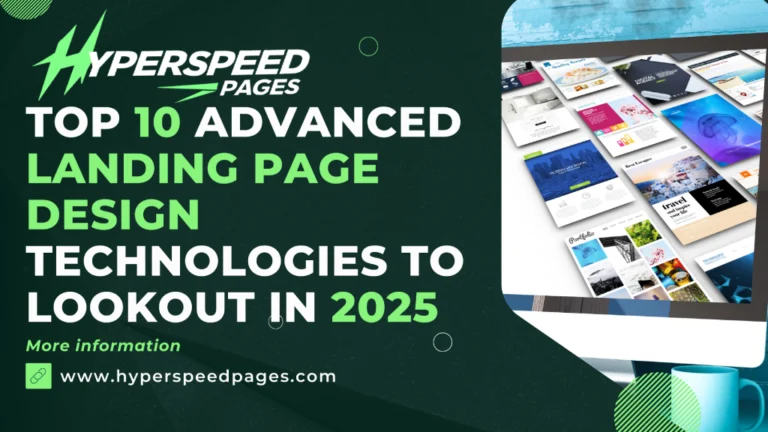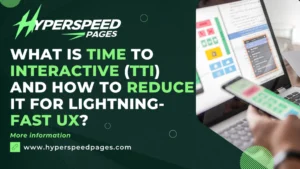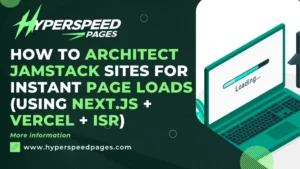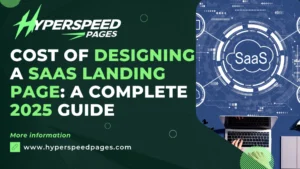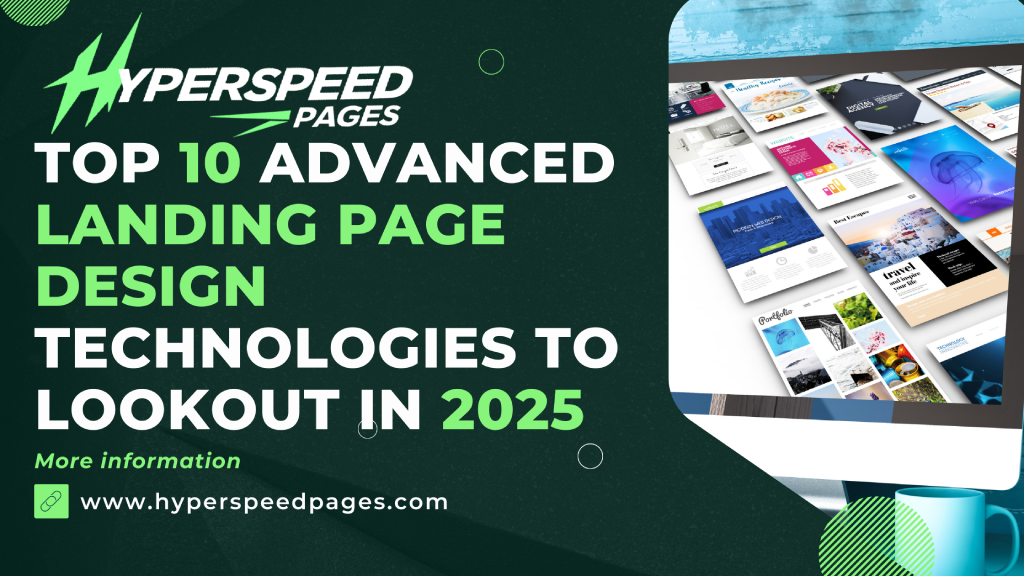
Landing page design technologies have reached unprecedented levels of sophistication. Businesses striving to maximize conversions, enhance user experiences, and stay ahead of the competition must leverage these cutting-edge advancements.
Why Landing Page Design Matters in 2025
According to recent studies, landing pages with tailored designs can achieve conversion rates exceeding 10%, far surpassing the typical 2-5% average across industries. With mobile traffic dominating at over 60% of global web usage and user attention spans shrinking to mere seconds, advanced technologies are essential to capture, engage, and convert audiences effectively.
1. AI-Driven Dynamic Personalization
What It Is
Artificial Intelligence (AI) in 2025 has evolved beyond basic automation, enabling dynamic personalization at scale. This technology uses machine learning algorithms to analyze user data—such as browsing history, demographics, and real-time behavior—to deliver tailored landing page content instantly.
How It Works
AI systems integrate with data platforms (e.g., CRMs, DMPs) to process vast datasets. Using natural language processing (NLP) and predictive analytics, they adjust headlines, images, CTAs, and layouts to match individual user preferences. For instance, a visitor from New York searching for “sustainable clothing” might see a landing page with eco-friendly product highlights, while a London-based user interested in “luxury fashion” sees premium offerings.
Benefits
- Conversion Boost: Personalized pages can increase conversions by up to 80%, per Unbounce research.
- Scalability: AI handles millions of unique visitor profiles without manual intervention.
- Real-Time Adaptation: Content updates in milliseconds based on user interactions.
Implementation
Tools like Adobe Experience Cloud and Dynamic Yield lead the charge, offering APIs for seamless integration. Developers can leverage JavaScript frameworks (e.g., React) to render personalized components dynamically.
SEO Optimization Tip
Incorporate long-tail keywords like “AI-powered sales funnel landing page personalization in 2025″ to rank for niche, tech-savvy audiences.
2. Voice User Interface (VUI) Integration
What It Is
With voice assistants like Alexa and Google Assistant dominating homes, Voice User Interfaces (VUIs) are transforming landing pages into interactive, voice-activated experiences in 2025.
How It Works
VUI-enabled landing pages use speech recognition APIs (e.g., Web Speech API) to process voice commands. Users can say, “Show me pricing,” and the page scrolls to the pricing section or triggers a chatbot response. Natural Language Understanding (NLU) ensures accurate intent recognition.
Benefits
- Accessibility: Enhances usability for visually impaired users, aligning with ADA standards.
- Engagement: Voice interactions reduce friction, keeping users on-page longer.
- Mobile Optimization: Perfect for hands-free navigation on smartphones.
Implementation
Integrate libraries like Speechly or Google Cloud Speech-to-Text with your landing page codebase. Ensure lightweight scripts to maintain fast load times—a critical Google ranking factor.
SEO Optimization Tip
Optimize for voice search queries like “What are the best landing page technologies in 2025?” to capture conversational traffic.
3. Augmented Reality (AR) Previews
What It Is
Augmented Reality (AR) overlays digital elements onto the real world, allowing users to interact with products directly from landing pages in 2025.
How It Works
Using WebAR frameworks like AR.js or 8th Wall, landing pages embed AR experiences via WebGL and camera APIs. For example, a furniture retailer’s landing page might let users visualize a sofa in their living room by activating their device camera.
Benefits
- Immersive Experience: Increases user dwell time by 40%, per recent UX studies.
- Higher Conversions: Interactive previews reduce purchase hesitation.
- Competitive Edge: Positions brands as innovative leaders.
Implementation
Developers can use Three.js for 3D rendering and integrate AR triggers via HTML5. Ensure mobile optimization, as AR thrives on smartphones.
SEO Optimization Tip
Target keywords like “AR landing page design 2025” to attract tech-forward businesses and consumers.
4. Progressive Web App (PWA) Landing Pages
What It Is
Progressive Web Apps (PWAs) blend native app functionality with web accessibility, making landing pages faster, offline-capable, and installable in 2025.
How It Works
PWAs leverage service workers and caching strategies to deliver instant loading and offline functionality. A landing page built as a PWA can be pinned to a user’s home screen, ensuring repeat engagement.
Benefits
- Speed: Load times under 1 second, improving Google’s Core Web Vitals scores.
- Retention: Installable pages increase return visits by 30%.
- Cost-Effective: No app store dependency reduces development overhead.
Implementation
Use frameworks like Workbox or Next.js with PWA plugins. Optimize manifest files for cross-browser compatibility.
SEO Optimization Tip
Rank for “PWA landing page benefits 2025” to target developers and marketers seeking performance boosts.
5. 3D Interactive Elements
What It Is
3D interactive elements powered by WebGL and GPU acceleration will bring landing pages to life with animations, hover effects, and clickable models.
How It Works
Libraries like Three.js or Babylon.js render 3D objects within the browser. A tech gadget landing page, for example, might feature a rotating 3D model of a smartphone, zoomable via mouse or touch input.
Benefits
- Visual Appeal: Captures attention instantly, reducing bounce rates.
- Engagement: Interactive elements increase time-on-page by 25%.
- Brand Perception: Signals modernity and technical prowess.
Implementation
Embed 3D assets using lightweight file formats (e.g., GLTF). Optimize for mobile with fallback 2D images to maintain performance.
SEO Optimization Tip
Use phrases like “3D landing page design trends 2025” to attract design-focused queries.
6. Micro-Animations with Web Animation API
What It Is
Micro-animations—subtle, purposeful movements—enhance UX in 2025 using the Web Animation API for precise control and performance.
How It Works
The API animates CSS properties (e.g., opacity, scale) with JavaScript-driven keyframes. A CTA button might pulse gently, or a form field might expand smoothly upon focus.
Benefits
- User Guidance: Directs attention to key actions, boosting conversions.
- Delightful UX: Small animations improve perceived responsiveness.
- Lightweight: Minimal impact on page speed compared to video.
Implementation
Leverage the Web Animation API or libraries like GSAP for complex sequences. Test across devices to ensure smooth playback.
SEO Optimization Tip
Target “micro-animations in landing pages 2025” for UX designers seeking subtle enhancements.
7. Zero-Code AI Design Platforms
What It Is
Zero-code platforms powered by AI, like Framer AI or Webflow AI, allow non-technical users to create advanced landing pages in 2025 with minimal effort.
How It Works
These platforms use generative AI to suggest layouts, color schemes, and content based on user inputs (e.g., “create a tech product landing page”). Machine learning refines designs iteratively based on performance data.
Benefits
- Accessibility: Democratizes design for small businesses.
- Speed: Reduces development time by 70%.
- Optimization: AI suggests conversion-focused elements.
Implementation
Sign up for platforms like Framer or Bubble, input goals, and let AI handle the heavy lifting. Fine-tune with drag-and-drop editors.
SEO Optimization Tip
Rank for “AI landing page design tools 2025” to reach no-code enthusiasts.
8. Predictive Heatmaps with Eye-Tracking AI
What It Is
Predictive heatmaps powered by eye-tracking AI analyze where users look on a landing page, optimizing layout and CTA placement in 2025.
How It Works
AI models trained on eye-tracking data (e.g., from Tobii or webcam-based solutions) simulate user attention patterns. Tools like Hotjar AI then suggest design adjustments—moving a CTA above the fold, for instance.
Benefits
- Data-Driven Design: Increases click-through rates by 20-30%.
- User-Centric: Aligns layouts with natural viewing habits.
- Efficiency: Reduces A/B testing cycles.
Implementation
Integrate heatmap tools via JavaScript snippets. Use insights to tweak HTML/CSS structure.
SEO Optimization Tip
Optimize for “predictive heatmaps landing page 2025” to attract UX researchers.
9. Blockchain-Verified Trust Signals
What It Is
Blockchain technology verifies trust signals (e.g., reviews, certifications) on landing pages, enhancing credibility.
How It Works
Blockchain creates tamper-proof records of testimonials or credentials, displayed via QR codes or badges. Ethereum smart contracts, for instance, can validate a “Certified Partner” claim in real time.
Benefits
- Trust: Reduces skepticism, boosting conversions by 15%.
- Transparency: Appeals to privacy-conscious users.
- Authority: Positions brands as tech-forward.
Implementation
Use blockchain APIs (e.g., Chainlink) to embed verified data. Display via HTML widgets.
SEO Optimization Tip
Target “blockchain trust signals landing pages 2025” for security-focused niches.
10. Haptic Feedback Integration
What It Is
Haptic feedback brings tactile sensations to landing pages in 2025, enhancing mobile and VR experiences via device vibration or pressure simulation.
How It Works
The Web Haptics API triggers device actuators (e.g., phone motors) on user interactions. A “Buy Now” button might vibrate subtly, mimicking a physical press.
Benefits
- Immersion: Enhances sensory engagement, increasing dwell time.
- Novelty: Differentiates brands in crowded markets.
- Accessibility: Aids users with visual impairments.
Implementation
Integrate with JavaScript event listeners. Test on haptic-enabled devices (e.g., iPhones, VR controllers).
SEO Optimization Tip
Rank for “haptic feedback landing pages 2025” to target innovative UX trends.
How to Implement These Technologies: A Step-by-Step Guide
- Assess Goals: Define your landing page objectives—lead generation, sales, or awareness.
- Choose Tools: Select technologies based on budget and audience (e.g., AR for e-commerce, VUI for accessibility).
- Optimize Performance: Prioritize Core Web Vitals—aim for <2.5s LCP and <100ms FID.
- Test Iteratively: Use A/B testing tools like Optimizely to refine designs.
- Monitor Analytics: Track KPIs (conversion rate, bounce rate) with Google Analytics.
The Future of Landing Pages in 2025 and Beyond
From AI personalization to haptic feedback, each innovation addresses a unique challenge—capturing attention, building trust, or driving action. As Google’s algorithms evolve to prioritize user experience (e.g., Page Experience updates), adopting these advancements ensures both SEO success and customer satisfaction.
Expert Tip
Stay adaptable. Technologies like quantum computing and 6G networks, looming on the horizon, promise even faster, more immersive landing pages by 2030. Start experimenting now to future-proof your strategy.
Landing page design in 2025 is a fusion of art and science, powered by advanced technologies that redefine digital engagement. Ready to transform your landing pages? Start with one technology from this list, measure its impact, and scale your success.

